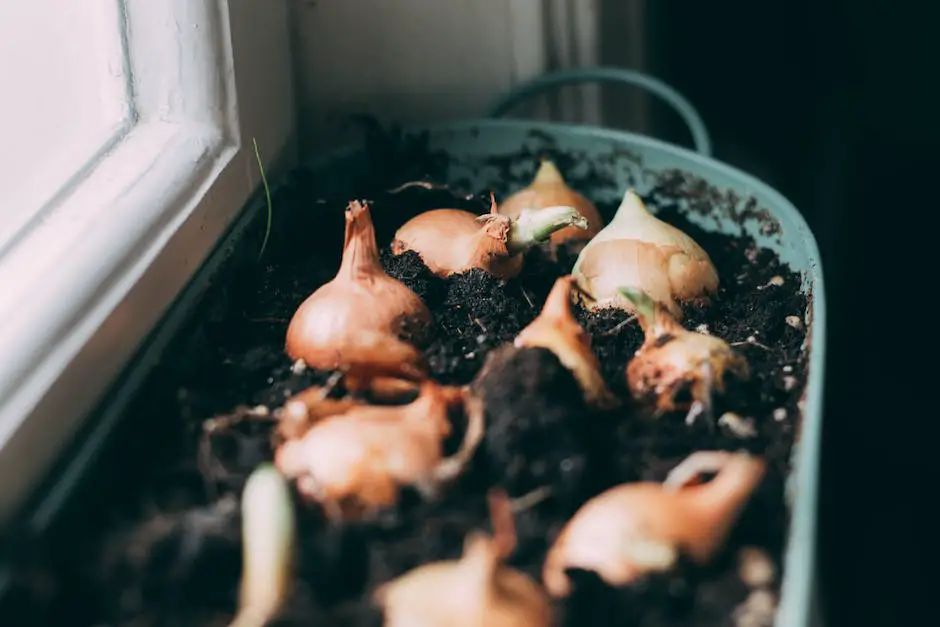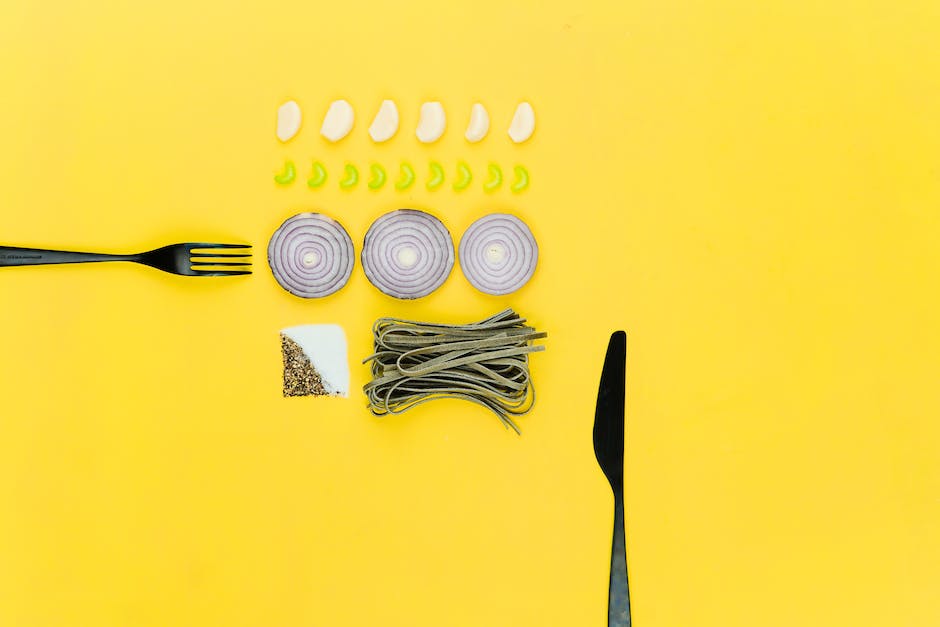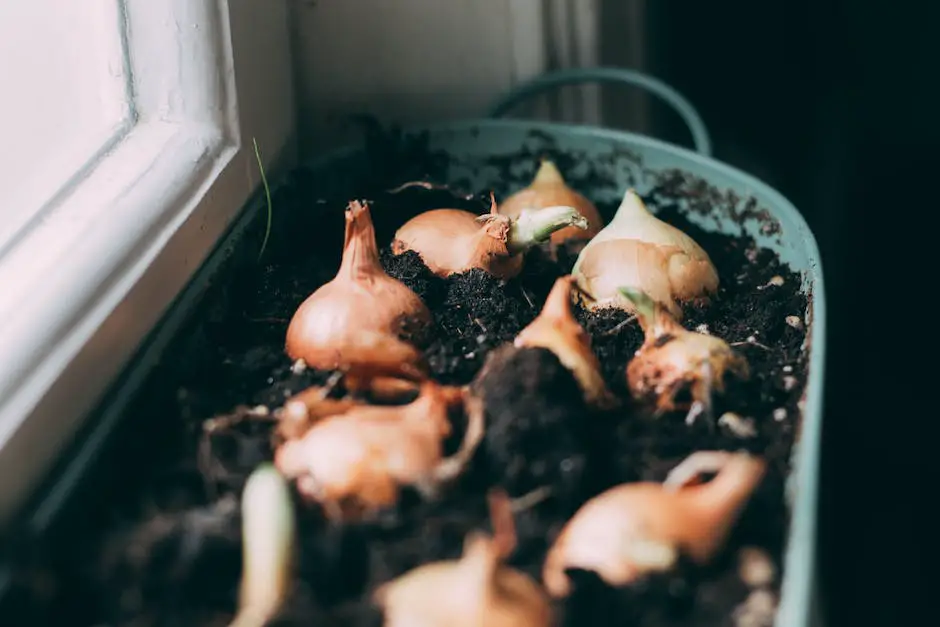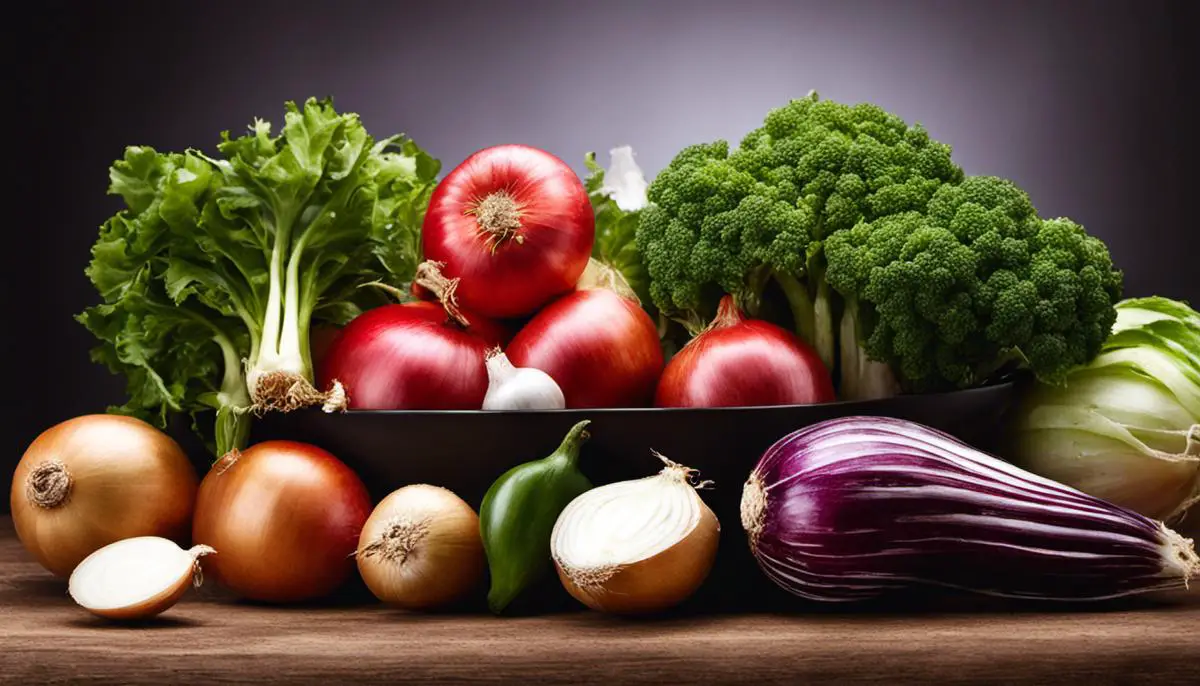Navigating the world of fresh produce can often be bewildering, especially when it comes to understanding how to optimally store and maintain different ingredients for maximum freshness. As one of the most commonly used items in culinary applications worldwide, onions are frequently the subject of such discussions. The proper storage of chopped onions, in particular, is crucial to both ensure food safety and maximize their useful life in our kitchens. This discourse delves into the scientific and practical methods for onion storage, paying particular attention to the effects of variables like temperature, humidity, and light. By aligning the basics of food safety with respect to onions, we aim to shine a light on the essential storage guidelines that are often neglected yet could significantly impact the shelf-life and quality of our beloved alliums.
Proper Storage for Fresh Produce
Investigating the Recommended Methods for Storing Chopped Onions
The method of storing chopped onions can have a significant impact on how long they will last. It’s recommended to store them in a sealed container in the refrigerator to prevent them from releasing the aroma into other surrounding foods. They should be used within seven to ten days for the best quality, although they may still be safe to consume after this period, provided there are no signs of spoilage like mold or a bad smell.
Reader Poll: What online courses would interest you?
It’s also important to remember that chopped onions should be stored separately from whole onions. The latter needs a cool, dry, well-ventilated place and should not be stored in the fridge, as the moisture can cause them to become soft and spoil faster.
The Influence of Temperature on Freshness of Chopped Onions
Temperature plays a crucial role in extending the lifespan of chopped onions. The cold temperature of a refrigerator, ideally set between 35 to 40 degrees Fahrenheit, slows the growth of bacteria significantly. As such, storing them in the fridge allows for a much longer potential lifespan.
Role of Humidity in Storing Chopped Onions
Humidity can cause a problem in the storage of chopped onions as an environment that is too humid can make them spoil faster. Refrigerators provide a less humid environment compared to room temperature, thereby increasing the longevity of the onions. The use of a crisp drawer allows for a reduced humidity level, helping to maintain freshness and extend shelf-life.
Subscribe to our newsletter!
The Impact of Light Exposure on Chopped Onions
Exposure to light can also impact the freshness of onions. Once sliced, onions should be kept out of direct light. Light can stimulate sprouting and lead to faster deterioration. It’s best to store chopped onions in a dark container to prevent exposure to light if they are not being stored in the refrigerator.
In conclusion, proper storage methods can help extend the life of chopped onions in the fridge. By considering factors such as temperature, humidity, and light exposure, it’s possible to maintain the freshness of chopped onions for up to ten days.

Food Safety and Onions
Understanding Food Safety for Onions
Mastery of food safety rules and guidelines related to the handling and storage of onions is essential for keeping this ingredient fresh and safe to consume. It’s important to know that once onions are peeled or chopped, they become potentially hazardous food.
Storage Time for Chopped Onions
After an onion is chopped, it can remain in the refrigerator for 7 to 10 days. This storage time maintains the safety of the food, assuming it is stored properly. While it’s possible that a chopped onion might still look, smell, or taste okay past that time frame, it’s not worth the risk of foodborne illness to consume it.
Ideal Conditions for Onion Storage
Optimal storage conditions for onions include a clean, dry, cool, well-ventilated area away from sunlight. For chopped onions, it’s best to store them in a sealed plastic bag or in a covered container to prevent them from absorbing odors from other food items in the refrigerator. They should be stored at a temperature of 40 degrees Fahrenheit or below.
Detecting Spoilage in Chopped Onions
Recognizing factors that could cause chopped onions to spoil is a crucial component of safe food handling. These include soaking, turning soft or mushy, developing a more pungent smell, or showing visible signs of mold. If you observe any of these signs, it’s best to discard the onions to avoid any health risks.
Health Risks of Consuming Spoiled Onions
Consuming spoiled onions can lead to foodborne illness, which is commonly manifested through symptoms like vomiting, diarrhea, abdominal cramping, and fever. The responsible pathogens generally include Salmonella, E. coli, and other bacteria that can lead to serious health issues, particularly in individuals with weakened immune systems.
Proper Handling of Chopped Onions
Lastlly, always wash your hands before handling onions, especially if they will not be cooked before eating. Similarly, ensure that your cutting board and knife are clean, too, to prevent cross-contamination with bacteria from other foods. If you are chopping onions for later use, place them in the refrigerator within two hours to minimize the risk of bacterial growth.

Practical Tips for Making Chopped Onions Last Longer
Understanding the Lifespan of Chopped Onions
Chopped onions usually last in the refrigerator for seven to ten days. To maximize their lifespan, it’s essential to store them properly. Inadequate storage conditions can reduce their quality and freshness, leading to faster spoilage.
Proper Storage Techniques for Chopped Onions
According to the Food and Drug Administration (FDA), chopped onions should always be stored in a sealed container in the refrigerator to prevent bacterial growth. Regularly check your fridge temperature as it should always be at or below 40°F (4°C). If the chopped onions develop a strong smell, change color, or become slimy, it’s an indication that they have spoilt and should not be consumed.
Professional Chef Advice
Several professional chefs recommend using airtight containers for storing chopped onions in the refrigerator. This practice not only increases the onion’s longevity but also minimizes the spread of its pungent odor within the fridge. If, for instance, chef Alton Brown’s techniques are to be considered, he specifically suggests wrapping the onions tightly with plastic wrap before putting them into airtight containers. This double protection keeps them fresh for up to two weeks.
Scientific Insights
Scientific studies also shed light on the importance of not only how we store onions but also how we chop them. According to research published in the Journal of Agricultural and Food Chemistry, onions should be cut in a way where the base or root end is not damaged, as this section of the onion holds the highest concentration of sulfuric compounds that give onions their pungency and act as a deterrent against pests. Maintaining the root end ensures the chopped pieces can last longer in the refrigerator.
Home Cook Solutions
Some home cooks swear by the effectiveness of paper towels in storing chopped onions. They advise placing a layer of paper towels in an airtight container, laying the onion pieces on top, and then covering them with another layer of paper towels. The towels help absorb excess moisture that could accelerate microbial growth leading to spoilage.
Another popular hack from seasoned home cooks involves freezing the onions. When the chopped onions are sealed in freezer-safe bags and kept at a temperature of 0°F or below, they can last up to six months. But, remember frozen onions may lose their crunch and are best used in cooked dishes.

Whether you’re an everyday home cook or a professional chef, understanding the best practices for storing chopped onions can significantly impact their freshness and, in turn, the quality of meals prepared. A failure to adhere to these guidelines can lead to degradation of the ingredient, increasing health risks associated with spoiled food. As highlighted in this discourse, the optimal route towards achieving longevity in onion storage entails a combination of science-backed strategies and easy-to-follow practical tips. Both perspectives agreed on controlling pivotal factors such as temperature, humidity, and light exposure. Furthermore, proper storage techniques are a testament to the philosophy that a conscious approach towards our nourishment can not only foster a safer kitchen environment but also contribute towards limiting unnecessary food waste. In this light, the humble onion serves as a metaphor for the broader spectrum of food safety and sustainability challenges that we encounter in our modern culinary landscape.

